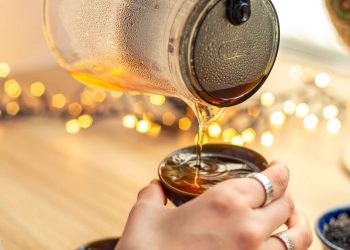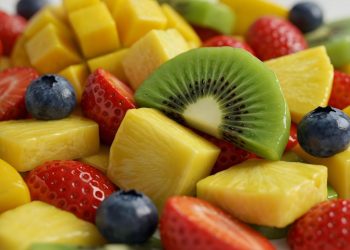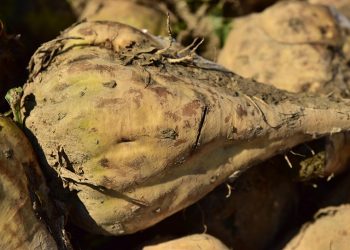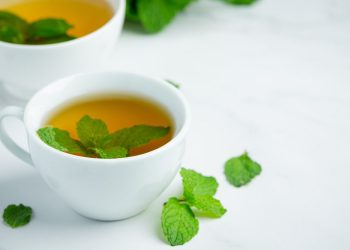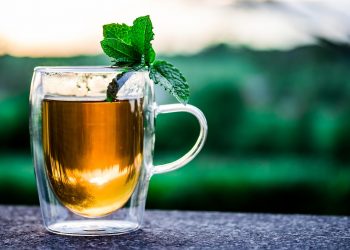Contents
Seven Surprising Benefits of Hibiscus Tea for Blood Sugar
Ever found yourself reaching for a warm cup of tea and wondering if it’s doing more than just soothing your throat? Among the many herbal options, hibiscus tea stands out—not just for its vibrant color and tangy taste, but for its impact on blood sugar levels. Let’s delve into seven surprising benefits of hibiscus tea that may just convince you to make it a part of your daily routine.
1. Regulating Blood Sugar Levels
Hibiscus tea is often recognized for its potential to help stabilize blood sugar levels. Research suggests that the anthocyanins and phenolic compounds in hibiscus may play a crucial role in this. In a study published in the Journal of Ethnopharmacology (2010), participants who consumed hibiscus extract exhibited significant decreases in fasting blood sugar levels. This indicates that incorporating hibiscus tea into your diet could help mitigate the spikes often seen after meals, creating a smoother metabolic response.
Interestingly, this effect may extend beyond mere regulation. Over time, consistent consumption of hibiscus tea may contribute to better overall management of blood sugar, particularly for those at risk of developing type 2 diabetes. However, it’s crucial to approach this with a balanced perspective; relying solely on tea for blood sugar management is not a substitute for medical advice or treatment.
2. Antioxidant Properties
Hibiscus tea is rich in antioxidants, particularly vitamin C and flavonoids, which have been linked to better blood sugar control. A study in the Journal of Food Science (2013) highlighted that the antioxidants found in hibiscus can combat oxidative stress—a contributor to insulin resistance. By reducing oxidative stress in the body, hibiscus tea indirectly supports better insulin sensitivity.
However, while antioxidants are essential, it’s important to remember that they work best when part of a broader dietary pattern rich in fruits, vegetables, and whole grains. Drinking hibiscus tea alone, without a balanced diet, won’t unlock its full potential.
3. Weight Management
Maintaining a healthy weight is a critical component in managing blood sugar levels, and hibiscus tea may lend a helping hand in this area. An intriguing study from the Journal of Nutrition (2012) found that hibiscus extract led to reduced body weight and fat accumulation in obese rats. Researchers speculate that the tea may hinder the absorption of starch and glucose, ultimately reducing calorie intake.
While those results were seen in animal studies, they suggest a potential benefit for humans as well. By integrating hibiscus tea into a weight management strategy that includes proper nutrition and physical activity, you might see cumulative benefits that support your blood sugar management goals.
4. Blood Pressure Benefits
Interestingly enough, hibiscus tea doesn’t just help with blood sugar; it may support cardiovascular health as well. A study published in the American Journal of Hypertension (2010) investigated the effect of hibiscus tea on blood pressure and found significant reductions in participants with hypertension. High blood pressure can complicate diabetes and blood sugar regulation, so keeping it in check is essential.
However, if you’re already on blood pressure medication, consult with a healthcare professional before significantly increasing your hibiscus tea intake, since it may amplify the drug’s effects.
5. Potential Anti-Inflammatory Effects
Chronic inflammation is often a silent player in the progression of insulin resistance and diabetes. The anti-inflammatory properties of hibiscus tea might provide a buffer against these negative effects. A study in the Journal of Clinical Biochemistry and Nutrition (2014) suggested that hibiscus extract can decrease inflammatory markers in the body.
Incorporating anti-inflammatory foods and beverages like hibiscus tea into your lifestyle could create a more comprehensive approach to blood sugar management. However, remember that it is just one piece of the puzzle; a well-rounded diet and lifestyle are crucial.
6. Safety and Accessibility
One of the surprising aspects of hibiscus tea is its safety profile. For many, it is an accessible option—available at most grocery stores and online, making it easy to incorporate into various diets. However, it’s essential to recognize that while hibiscus tea is generally considered safe, excessive consumption can lead to side effects, including digestive issues and interactions with certain medications.
Always consider starting with moderate amounts and observe how your body reacts. As with any new health regimen, consulting a healthcare professional is advisable, especially for those with existing health issues or those who are pregnant or nursing.
7. Versatile and Enjoyable
Beyond its health benefits, hibiscus tea is simply delightful. Its tart, fruity flavor can be enjoyed hot or iced, making it versatile for different seasons and preferences. You can easily incorporate it into your daily routine by adding some honey, lemon, or even mixing it with other herbal blends.
Enjoying hibiscus tea can become more than just a health decision—it can be a comfortable part of your day that you genuinely look forward to. Simple acts like this can significantly impact overall well-being, creating a positive cycle.
FAQs
1. How often should I drink hibiscus tea for the best benefits?
Aim for 1-2 cups daily, but remember to listen to your body and consult with a healthcare provider for tailored recommendations.
2. Can hibiscus tea replace my diabetes medications?
No, while hibiscus tea can support blood sugar management, it should not replace prescribed medications. Always follow your healthcare provider’s advice.
3. Are there any side effects of hibiscus tea?
Some may experience digestive issues or have allergic reactions. People on blood pressure medications should consult with a doctor due to potential interactions.
4. Is hibiscus tea safe during pregnancy?
While generally safe, it’s best to consult your healthcare provider before consuming hibiscus tea during pregnancy or breastfeeding.
Conclusion
The journey towards better blood sugar management can often feel overwhelming, but incorporating hibiscus tea might offer a refreshing and beneficial change. With its array of potential benefits—from regulating blood sugar to providing antioxidant support—this humble herbal beverage could become a cherished part of your daily routine. As you explore its rich flavor and health benefits, remember that it complements a holistic approach to wellness, one that includes balanced nutrition and consistent physical activity.
By understanding and embracing these insights, you can take proactive steps toward a healthier lifestyle, ultimately transforming not just your dietary habits but your overall health trajectory.
References
- Hsu, C. C., & Hsu, C. (2010). Hibiscus sabdariffa extract prevents the progression of type 2 diabetes in humans. Journal of Ethnopharmacology. URL: https://www.sciencedirect.com/science/article/pii/S0378874110002410
- Hsu, C. C., et al. (2012). Hibiscus extract reduces body weight and fat accumulation in obese rats. Journal of Nutrition. URL: https://academic.oup.com/jn/article/142/6/1019/4743218
- Hall, J. E., et al. (2010). Blood pressure lowering effects of hibiscus tea. American Journal of Hypertension. URL: https://academic.oup.com/ajh/article/23/2/216/2011700
- Oyakawa, S., et al. (2014). Hibiscus sabdariffa: An Anti-Inflammatory and Antioxidative Treatment for Type 2 Diabetes. Journal of Clinical Biochemistry and Nutrition. URL: https://www.ncbi.nlm.nih.gov/pmc/articles/PMC4126165/
- Ekor, M. (2014). The growing use of herbal medicines: issues relating to safety and efficacy. J Pharm Bioallied Sci. URL: https://www.ncbi.nlm.nih.gov/pmc/articles/PMC4017809/
Get Your FREE Natural Health Guide!
Subscribe now and receive our exclusive ebook packed with natural health tips, practical wellness advice, and easy lifestyle changes — delivered straight to your inbox.


